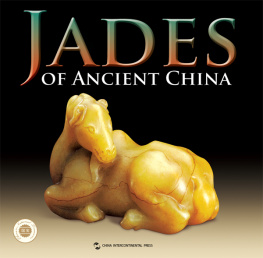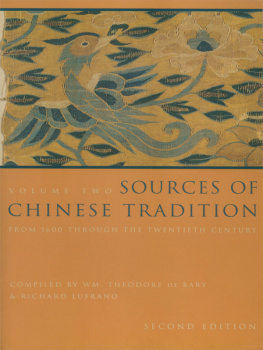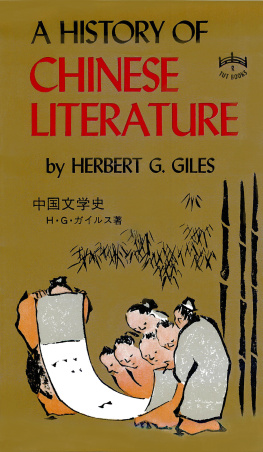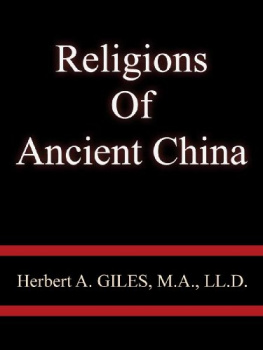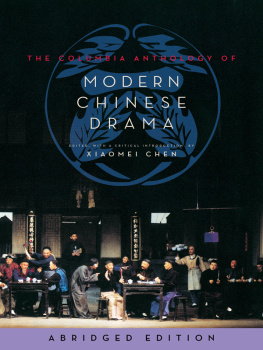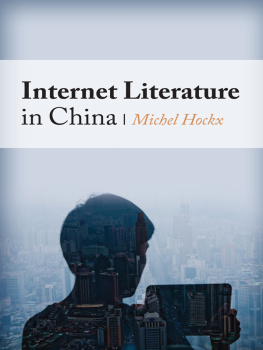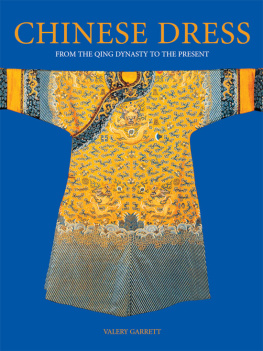The Project Gutenberg EBook of China and the Chinese, by Herbert Allen Giles
This eBook is for the use of anyone anywhere at no cost and with
almost no restrictions whatsoever. You may copy it, give it away or
re-use it under the terms of the Project Gutenberg License included
with this eBook or online at www.gutenberg.org
Title: China and the Chinese
Author: Herbert Allen Giles
Release Date: March 20, 2006 [EBook #18021]
Language: English
*** START OF THIS PROJECT GUTENBERG EBOOK CHINA AND THE CHINESE ***
Produced by R. Cedron, David Garcia and the Online
Distributed Proofreading Team at http://www.pgdp.net
CHINA AND THE CHINESE
CHINA AND THE CHINESE
BY
HERBERT ALLEN GILES, LL.D.
PROFESSOR OF CHINESE IN THE UNIVERSITY OF CAMBRIDGE
LECTURER (1902) ON THE DEAN LUNG FOUNDATION
IN COLUMBIA UNIVERSITY
NEW YORK
THE COLUMBIA UNIVERSITY PRESS
THE MACMILLAN COMPANY, Agents.
66 Fifth Avenue
1902
All rights reserved.
Copyright, 1902,
By THE MACMILLAN COMPANY.
Set up and electrotyped October, 1902.
Norwood Press
J. S. Cushing & Co.Berwick & Smith
Norwood Mass. U.S.A.
PREFACE
The following Lectures were delivered during March, 1902, at Columbia University, in the city of New York, to inaugurate the foundation by General Horace W. Carpentier of the Dean Lung Chair of Chinese.
By the express desire of the authorities of Columbia University these Lectures are now printed, and they may serve to record an important and interesting departure in Oriental studies.
It is not pretended that Chinese scholarship will be in any way advanced by this publication. The Lectures, slight in themselves, were never meant for advanced students, but rather to draw attention to, and possibly arouse some interest in, a subject which will occupy a larger space in the future than in the present or in the past.
HERBERT A. GILES.
Cambridge, England ,
April 15, 1902.
CONTENTS
LECTURE I
THE CHINESE LANGUAGE
Its ImportanceIts DifficultyThe ColloquialDialects"Mandarin"Absence of GrammarIllustrationsPidgin-EnglishScarcity of VocablesThe TonesCoupled WordsThe Written LanguageThe IndicatorsPicture CharactersPictures of IdeasThe PhoneticsSome Faulty Analyses ...
LECTURE II
A CHINESE LIBRARY
The Cambridge (Eng.) Library(A) The Confucian Canon(B) Dynastic HistoryThe "Historical Record"The "Mirror of History"BiographyEncyclopdiasHow arrangedCollections of ReprintsThe Imperial StatutesThe Penal Code(C) GeographyTopographyAn Old VolumeAccount of Strange Nations(D) PoetryNovelsRomance of the Three KingdomsPlays(E) DictionariesThe ConcordanceIts ArrangementImperial CatalogueSenior Classics ...
LECTURE III
DEMOCRATIC CHINA
The EmperorProvincial GovernmentCircuitsPrefecturesMagistraciesHeadboroughsThe PeopleThe MagistrateOther Provincial OfficialsThe PrefectThe Intendant of Circuit (Tao-t'ai)Viceroy and GovernorTaxationMencius on "the People"Personal LibertyNew ImpostsCombinationIllustrations ...
LECTURE IV
CHINA AND ANCIENT GREECE
Relative Values of Chinese and Greek in Mental and Moral TrainingLord GranvilleWn T'ien-hsiangHan YAn EmperorA Land of OppositesCoincidences between Chinese and Greek CivilisationsThe Question of Greek InfluenceGreek Words in ChineseCoincidences in Chinese and Western LiteratureStudents of Chinese wanted ...
LECTURE V
TAOISM
Religions in ChinaWhat is Tao?Lao TzThe Tao T ChingIts ClaimsThe Philosophy of Lao Tz-Developed by Chuang TzHis View of TaoA Taoist PoetSymptoms of DecayThe Elixir of LifeAlchemyThe Black Art
LECTURE VI
SOME CHINESE MANNERS AND CUSTOMS
Origin of the QueueSocial LifeAn EyeglassStreet EtiquetteGuest and HostThe Position of WomenInfanticideTraining and Education of WomenThe Wife's StatusAncestral WorshipWidowsFoot-bindingHenpecked HusbandsThe Chinaman a MysteryCustoms vary with PlacesDog's FleshSubstitutes at ExecutionsDoctorsConclusion ...
INDEX
LECTURE I
THE CHINESE LANGUAGE
CHINA AND THE CHINESE
THE CHINESE LANGUAGE
If the Chinese people were to file one by one past a given point, the interesting procession would never come to an end. Before the last man of those living to-day had gone by, another and a new generation would have grown up, and so on for ever and ever.
The importance, as a factor in the sum of human affairs, of this vast nation,of its language, of its literature, of its religions, of its history, of its manners and customs,goes therefore without saying. Yet a serious attention to China and her affairs is of very recent growth. Twenty-five years ago there was but one professor of Chinese in the United Kingdom of Great Britain and Ireland; and even that one spent his time more in adorning his profession than in imparting his knowledge to classes of eager students. Now there are all together five chairs of Chinese, the occupants of which are all more or less actively employed. But we are still sadly lacking in what Columbia University appears to have obtained by the stroke of a generous pen,adequate funds for endowment. Meanwhile, I venture to offer my respectful congratulations to Columbia University on having surmounted this initial difficulty, and also to prophesy that the foresight of the liberal donor will be amply justified before many years are over.
I have often been asked if Chinese is, or is not, a difficult language to learn. To this question it is quite impossible to give a categorical answer, for the simple reason that Chinese consists of at least two languages, one colloquial and the other written, which for all practical purposes are about as distinct as they well could be.
Colloquial Chinese is a comparatively easy matter. It is, in fact, more easily acquired in the early stages than colloquial French or German. A student will begin to speak from the very first, for the simple reason that there is no other way. There are no Declensions or Conjugations to be learned, and consequently no Paradigms or Irregular Verbs.
In a day or two the student should be able to say a few simple things. After three months he should be able to deal with his ordinary requirements; and after six months he should be able to chatter away more or less accurately on a variety of interesting subjects. A great deal depends upon the method by which he is taught.
The written or book language, on the other hand, may fairly be regarded as a sufficient study for a lifetime; not because of the peculiar script, which yields when systematically attacked, but because the style of the book language is often so extremely terse as to make it obscure, and sometimes so lavishly ornate that without wide reading it is not easy to follow the figurative phraseology, and historical and mythological allusions, which confront one on every page.
There are plenty of men, and some women, nowadays, who can carry on a conversation in Chinese with the utmost facility, and even with grace. Some speak so well as to be practically indistinguishable from Chinamen.
There are comparatively few men, and I venture to say still fewer, if any, women, who can read an ordinary Chinese book with ease, or write an ordinary Chinese letter at all.
Speaking of women as students of Chinese, there have been so far only two who have really placed themselves in the front rank. It gives me great pleasure to add that both these ladies, lady missionaries, were natives of America, and that it was my privilege while in China to know them both. In my early studies of Chinese I received much advice and assistance from one of them, the late Miss Lydia Fay. Later on, I came to entertain a high respect for the scholarship and literary attainments of Miss Adle M. Fielde, a well-known authoress.




